🛏️Best Mattress for Back Pain: What to Look For
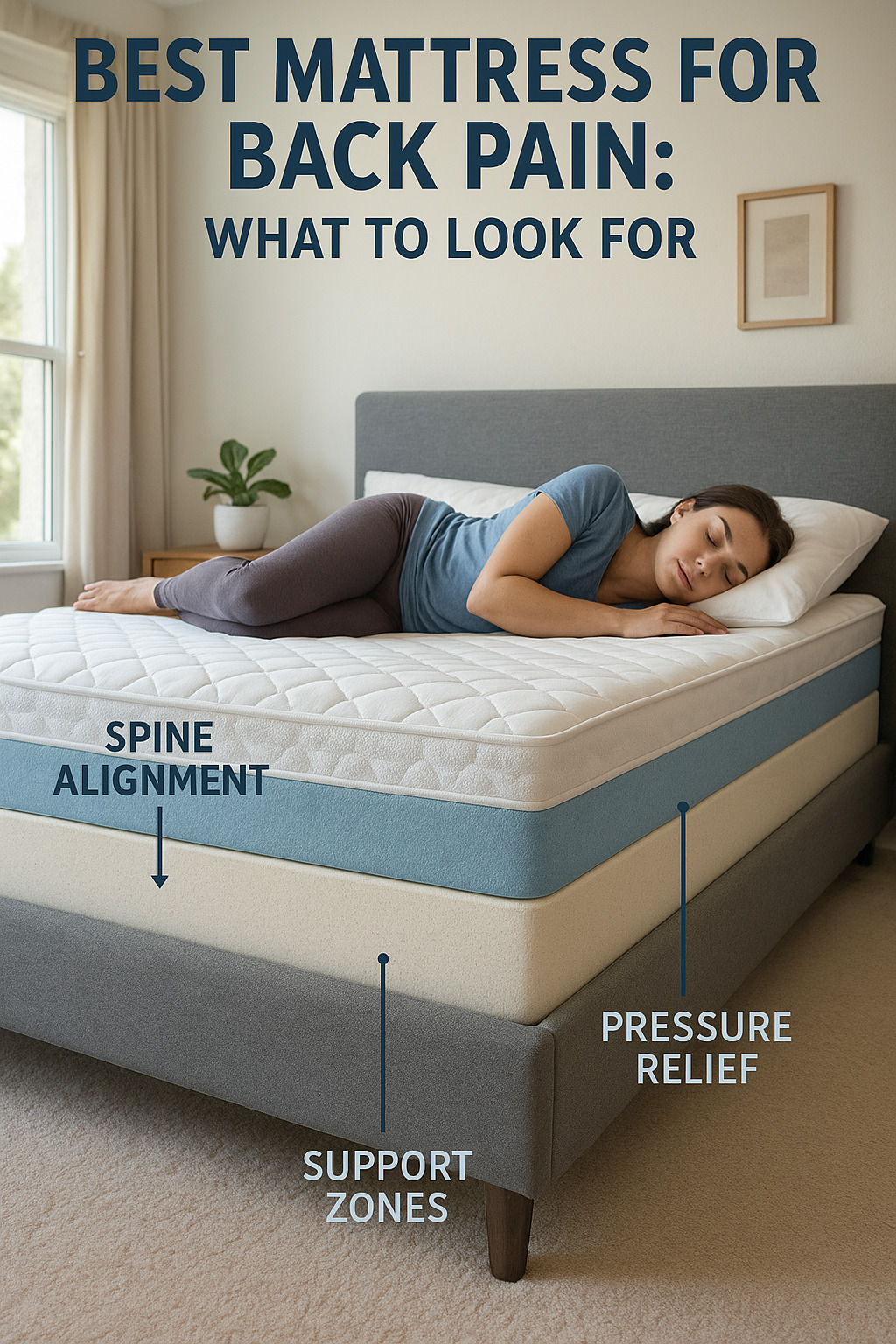
While creating a sleep-friendly home environment involves multiple factors, choosing the best mattress for back pain stands as one of the most critical decisions for your spinal health. Back pain affects 80% of adults at some point in their lives, and poor mattress support is often the culprit behind morning stiffness and chronic discomfort.
Finding the right mattress isn’t just about comfort—it’s about proper spinal alignment, pressure point relief, and supporting your body’s natural healing processes during sleep. The wrong mattress can transform your bedroom sanctuary into a source of daily pain, undermining all other sleep optimization efforts in your home environment.
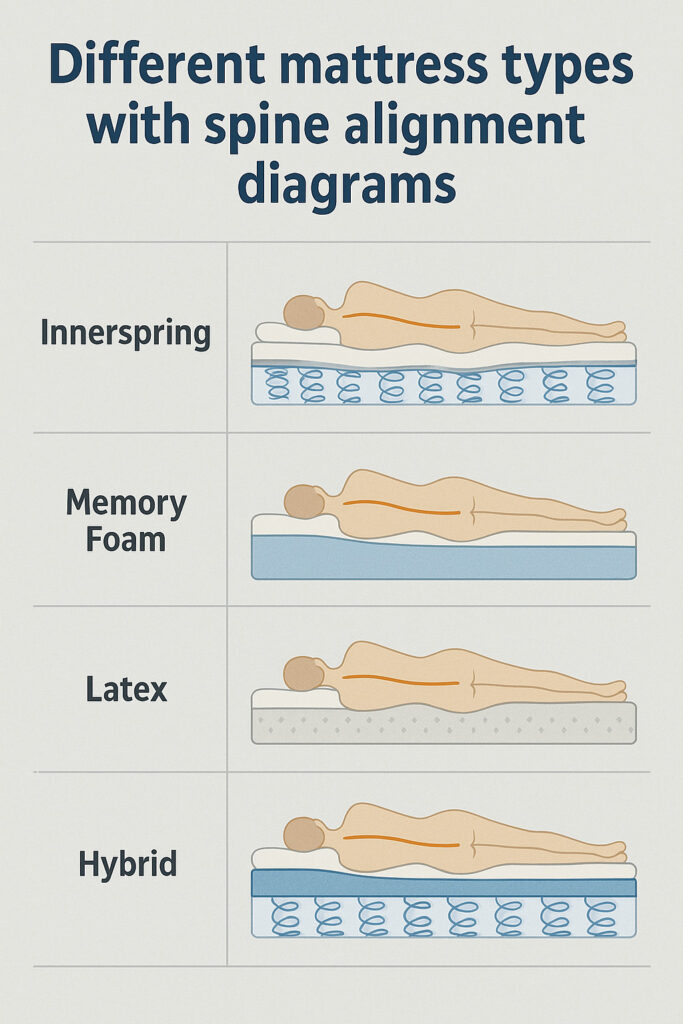
Quick Guide to Mattress Selection for Back Pain 🎯
🛏️ Medium-firm support provides optimal spinal alignment
🔄 Material matters – memory foam vs. innerspring considerations
📏 Personal factors – sleep position and body weight impact choice
💤 Trial periods – essential for testing real-world comfort
🎪 Pressure relief – key zones that need extra attention
📖 Related Resource: Creating a Sleep-Friendly Home Environment: Your Complete Guide to Better Rest
Research from the American Chiropractic Association reveals that 31 million Americans experience lower back pain at any given time, with mattress quality being a significant contributing factor. Your mattress serves as the foundation for 6-8 hours of spinal positioning every night.
When your mattress fails to maintain proper spinal curvature, your muscles work overtime trying to compensate, leading to morning stiffness and chronic pain. The right mattress choice can dramatically reduce pain levels and improve sleep quality within just a few weeks of switching.
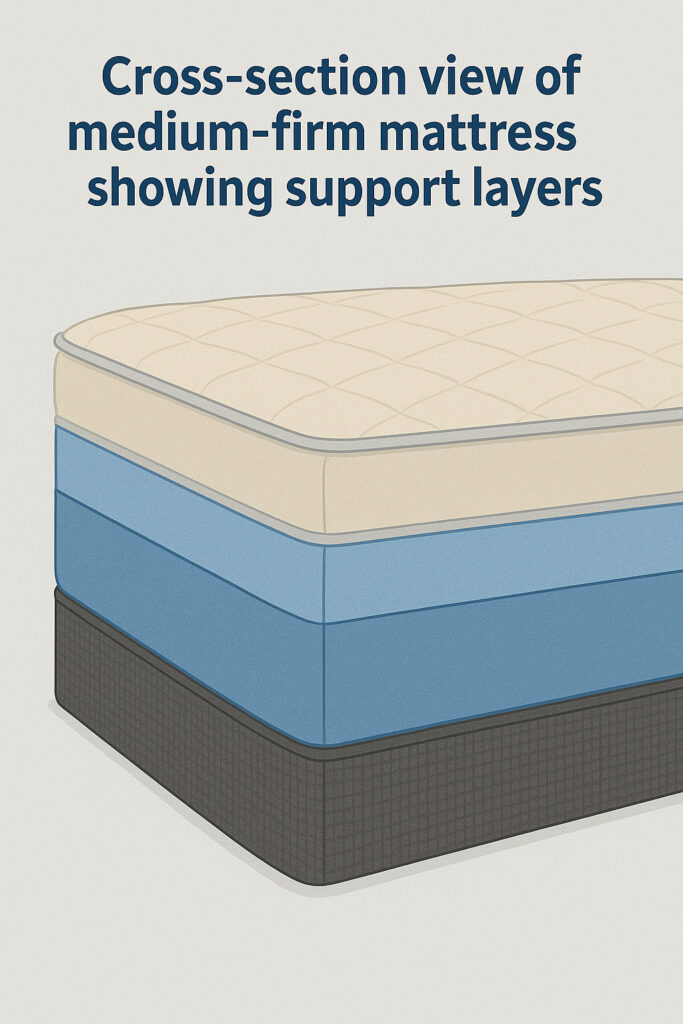
Understanding Mattress Firmness for Back Pain Relief
Medium-firm mattresses consistently rank highest for back pain relief in clinical studies. This firmness level provides the perfect balance between support and comfort, maintaining spinal alignment while relieving pressure points.
Firmness Scale Guide:
- Too soft (1-3/10): Causes spine to sink, creating unnatural curves
- Medium-firm (4-6/10): Optimal for most back pain sufferers
- Too firm (7-10/10): Can create pressure points and muscle tension
💡 Pro Tip: Your sleep position significantly impacts ideal firmness. Side sleepers may need slightly softer surfaces, while back and stomach sleepers typically benefit from firmer support.
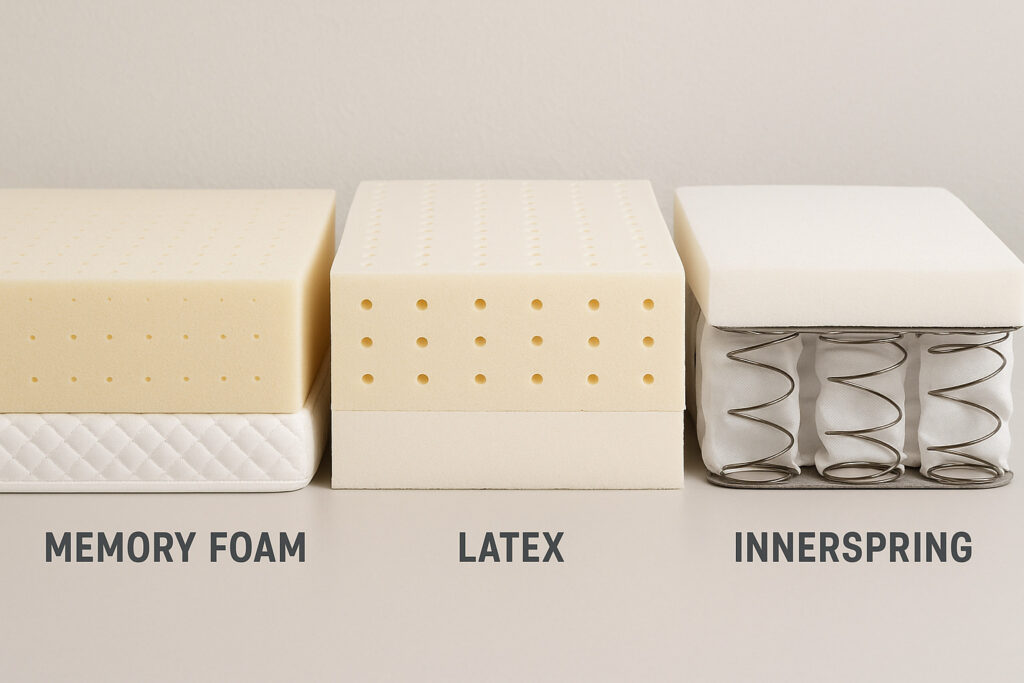
Material Considerations for Pain Relief
Memory Foam Benefits:
- Contours to body shape for pressure relief
- Reduces motion transfer
- Provides consistent support
Latex Mattress Advantages:
- Natural responsiveness and bounce
- Temperature regulation
- Durable support structure
Hybrid Options:
- Combines foam comfort with innerspring support
- Better airflow than pure memory foam
- Balanced feel for various sleep positions
Each material offers unique benefits for back pain sufferers. Consider your specific pain points and sleep preferences when choosing. Learn more about Creating a Sleep-Friendly Home Environment for comprehensive pain relief.
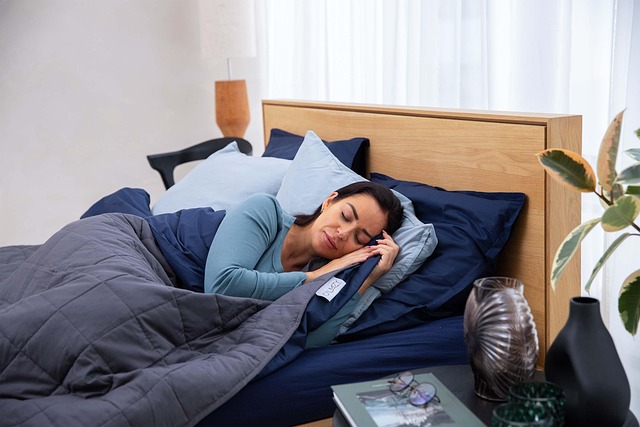
Testing Techniques for the Perfect Mattress
In-Store Testing Protocol:
- Wear comfortable clothes similar to sleepwear
- Test for 10-15 minutes in your primary sleep position
- Check spinal alignment – your spine should maintain natural curves
- Assess pressure points – hips and shoulders shouldn’t sink excessively
- Consider partner movement if sharing the bed
At-Home Trial Success Story: Sarah, a nurse with chronic lower back pain, used a 90-night trial period to test three different firmness levels. By week 4 on a medium-firm hybrid mattress, her morning pain decreased by 70%.
Sleep Trial Checklist:
✅ Morning stiffness levels
✅ Pain during night movements
✅ Overall sleep quality improvement
✅ Partner sleep disruption

Special Considerations and Common Challenges
Weight Distribution Factors:
- Heavier individuals (200+ lbs) typically need firmer support
- Lighter individuals may find medium-firm too rigid
- Couple weight differences require motion isolation features
Age-Related Adjustments:
- Older adults may need softer surfaces for joint relief
- Young adults often prefer firmer support for active lifestyles
⚠️ Attention: If you have specific medical conditions like herniated discs or arthritis, consult your healthcare provider before mattress shopping. Some conditions require specialized support features.
Regional Tip: Humidity levels in your area affect material choices. Memory foam retains more heat in humid climates, while latex and innerspring offer better breathability.

Making Your Final Decision
The best mattress for back pain combines proper firmness, quality materials, and personal comfort preferences. Remember that your mattress is just one component of your sleep-friendly home environment—proper pillows, room temperature, and sleep positioning all work together.
Next Steps:
- Identify your primary sleep position and pain points
- Test mattresses with generous trial periods
- Monitor pain levels and sleep quality during trials
- Consider complementary bedroom improvements
A quality mattress investment pays dividends in pain relief, improved sleep, and better daily functioning. Take time to find your perfect match—your back will thank you for years to come.
Frequently Asked Questions
🛏️ How long should I try a new mattress before deciding?
Give your body 3-4 weeks to adjust to new support. Initial stiffness is normal as your spine adapts to proper alignment. Track your pain levels weekly during this period.
💰 Is an expensive mattress always better for back pain?
Price doesn’t guarantee pain relief. Focus on firmness level, material quality, and trial periods rather than cost. Many mid-range options outperform luxury models for specific pain issues.
🔄 When should I replace my current mattress?
Replace every 7-10 years, or immediately if you wake up more tired than when you went to bed, notice visible sagging, or experience increased pain levels.
👥 What if my partner and I need different firmness levels?
Consider split-firmness mattresses, adjustable bases, or mattress toppers to customize individual sides without compromising the relationship.
Next Steps and Additional Resources
🔗 Essential Reading:
- Creating a Sleep-Friendly Home Environment: Your Complete Guide to Better Rest
- Best Air-Purifying Plants to Reduce Stress at Home
- DIY Vertical Herb Garden from Plastic Bottles: Sustainable Urban Gardening
- 5 Natural Ways to Improve Indoor Air Quality
💬 Share Your Experience: Have you found relief from back pain by changing your mattress? What firmness level worked best for your situation? Share your story in the comments below to help others in their journey to pain-free sleep.
🎯 Take Action: Start your mattress research today using the guidelines above, and remember that small improvements in sleep quality can lead to significant reductions in daily pain levels.
About the Author



0 Comments